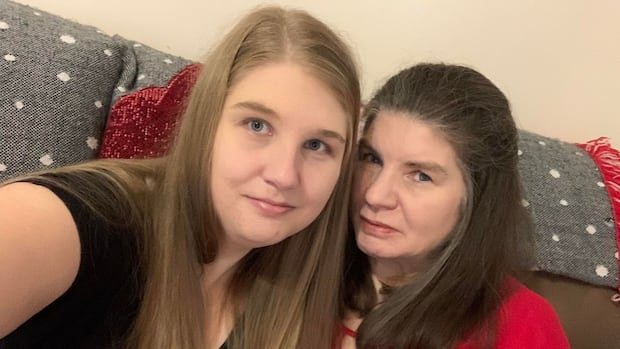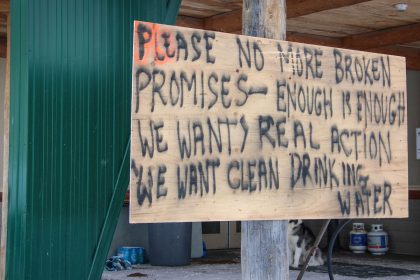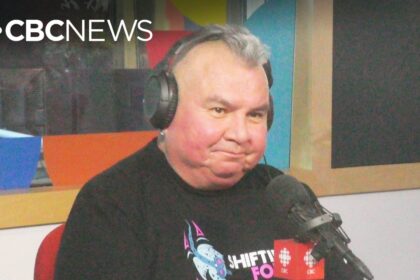New BrunswickA disabled mother and daughter in Fredericton say they were pushed to the brink of homelessness after a four-year battle over mould, poor air quality, and insect problems in their subsidized apartment ended with their landlord taking the unit out of the subsidy program altogether. New Brunswick has no law preventing private landlords from taking units out of the subsidy program at any timeIsabelle Leger · CBC News · Posted: Nov 02, 2025 5:00 AM EST | Last Updated: 3 hours agoListen to this articleEstimated 4 minutesLisa Young, 32 (left), Sandy White, 59, and their service dog moved into a unit at 46 Royal Rd. in 2021. Soon after, they noticed signs of moisture in the walls and black mould on the baseboards. (Submitted by Lisa Young )A disabled mother and daughter from Fredericton say they were on the verge of getting long-overdue repairs to their subsidized apartment when their landlord withdrew from New Brunswick’s rent subsidy program — a decision that nearly left them homeless.Lisa Young, 32, and her mother Sandy White, 59, now want the laws changed to prevent the same thing from happening to someone else.“These units are not getting the care they need and vulnerable people are stuck in them because they have nowhere else to go,” said Young. There is no legislation under the Residential Tenancies Act preventing landlords from opting their units out of the province’s subsidy program at any point.Julia Woodhall-Melnik, a social sciences professor at the University of New Brunswick with a focus on housing issues, said landlords often opt out of the N.B. Housing program to raise rent prices, but Young’s case highlights an easy out for landlords to avoid making improvements. Lisa Young began training her service dog Zola to help with her diagnosis of POTS, a condition that causes a spiked heart rate, dizziness and fatigue when transitioning from lying down to sitting up. (Submitted by Lisa Young)”There’s no red flag marker on this landlord that says ‘don’t let him rent it again until he fixes it,’ so this problem is just going to be passed on to another tenant,” said Woodhall-Melnik.She believes private landlords should have fixed-length subsidy agreements and shouldn’t be able to unilaterally pull out early. Four-year battle for noughtSoon after moving into their subsidized apartment in 2021, Young and her mother noticed black mould, the smell of smoke, smoke residue on the walls and kitchen cabinets, and a broken air vent.They filed a complaint with the province and requested they be moved to a new unit. Two years later, nothing changed. Then in July, after a Public Health inspector validated Young and her mother’s concerns, the Tenant and Landlord Relations Office (TLRO) stepped in and asked the landlord to make repairs. Julia Woodhall-Melnik, a social sciences professor at the University of New Brunswick with a focus on housing issues, says landlords often opt out of the N.B. Housing program to raise rent prices. (Cameron Fitch (UNB) )Weeks later, Young received a letter from the landlord stating her unit would be removed from the subsidy program on Oct. 31. That meant their rent would increase from $641 to $1,480 a month.Young said that price tag was simply more than they could afford. So, they notified the landlord they would be moving out and began their search for a new place. But finding a new place meant an end to the four-year-long battle to see the landlord improve conditions. According to an email from the TLRO, the investigation into Young’s case ended when she moved out of the apartment. The landlord did not respond to a CBC News interview request. It was Ability New Brunswick that advocated for the pair and got them a direct-to-tenant subsidy, which is when a subsidy is provided to a tenant versus the landlord. That offer was only available to Young and her mother because of their disabilities. David Hickey, minister responsible for N.B. Housing, said he couldn’t discuss specific cases but confirmed landlords must give 60 days’ notice to opt out of the province’s subsidy program.”While it can sometimes be challenging to find a new spot for these tenants, Housing NB does what it can to support them through these kinds of situations and to connect them with the support they need,” Hickey said. The direct-to-tenant program is currently out of funds and not accepting new applicants. More than over 13,000 households are on the N.B. Housing waitlist.ABOUT THE AUTHORIsabelle Leger is a reporter based in Fredericton. You can reach her at isabelle.leger@cbc.ca
‘It got bad’: Mother, daughter say fight to address health hazards in subsidized unit ended with rent increase











